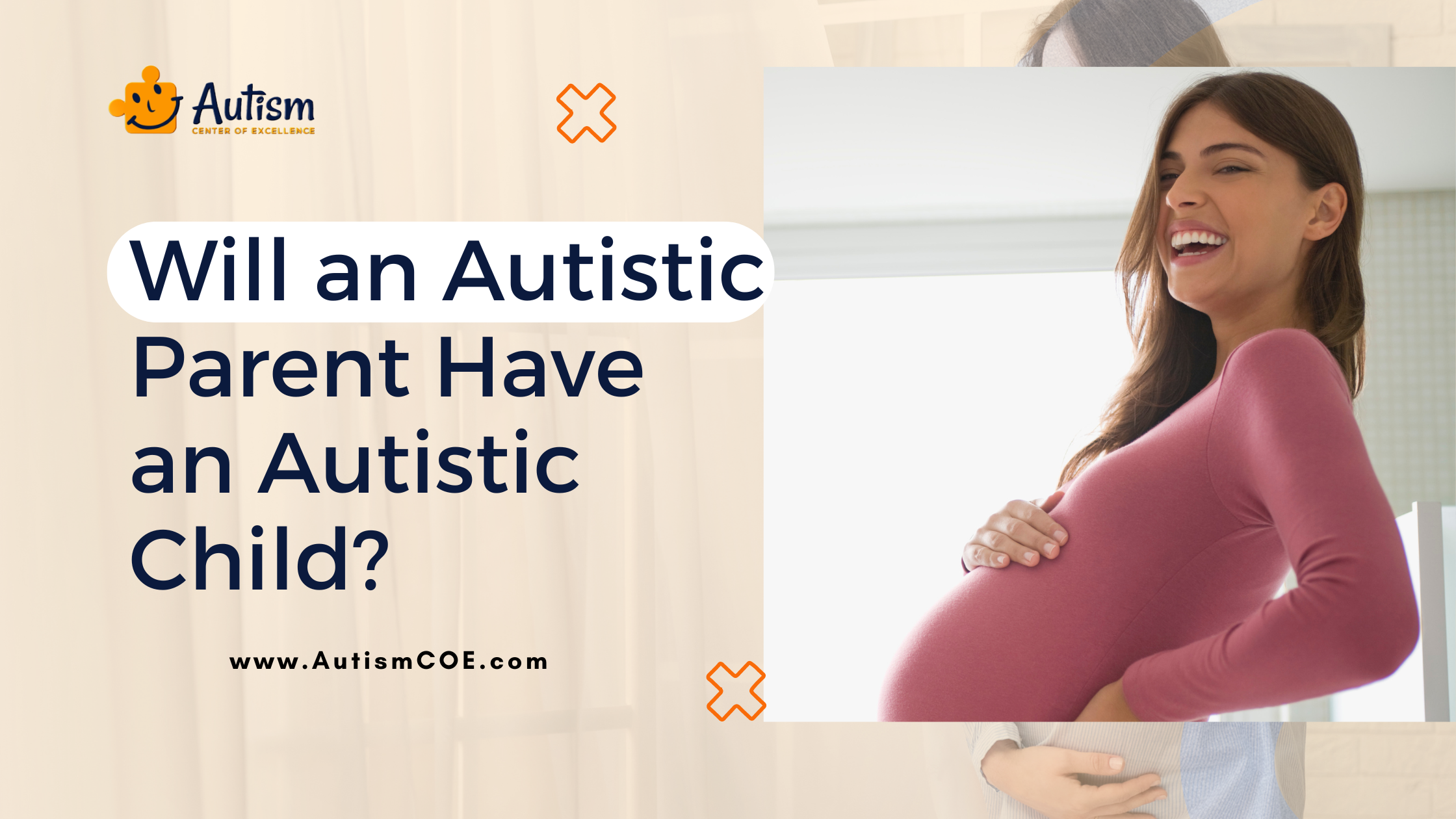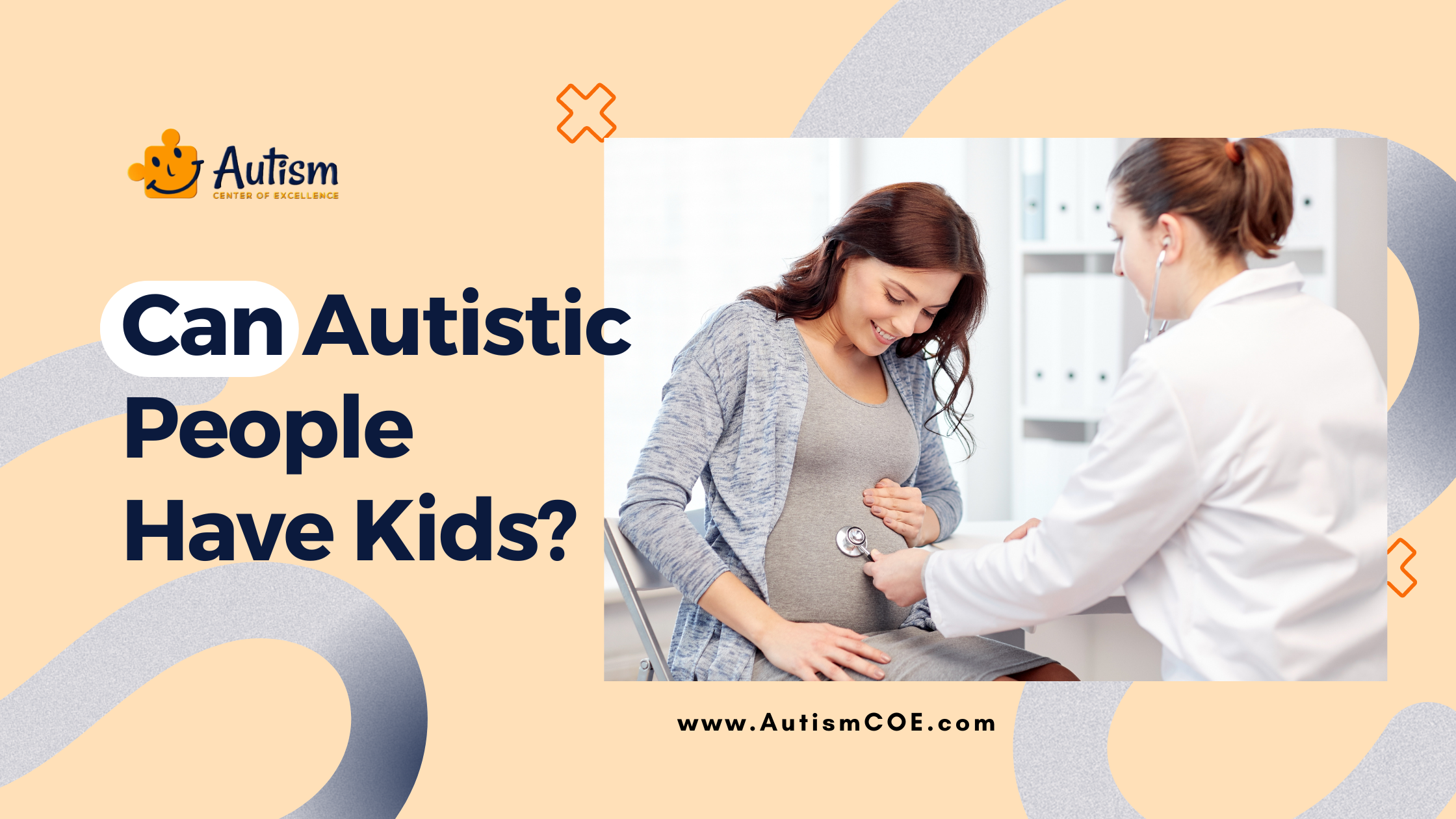Autism Spectrum Disorder (ASD) is a neurodevelopmental condition that affects communication, behavior, and social interaction. With more awareness and support, many autistic people are thinking about having children. Understanding how autism intersects with reproductive health is important for both prospective parents and healthcare providers.
1. Can Autistic People Have Children?
1.1 Reproductive Health in Autistic People: Autistic people can have children. However, they may face specific challenges with sensory sensitivities, communication barriers, or navigating medical systems. These can impact their reproductive experiences and outcomes.
1.2 Fertility and Pregnancy Considerations: There are myths about autistic people and fertility. It’s important to know that while autism itself doesn’t affect fertility, associated conditions or sensory sensitivities can impact pregnancy management. Medical and social support tailored to individual needs can make a big difference for autistic people during this time.

2. Will an Autistic Parent Have an Autistic Child?
2.1. Genetic Factors and Autism: Autism has a strong genetic component; research shows autism is hereditary. This genetic link means autistic parents are more likely to have children on the spectrum. Understanding these genetic links is important for prospective parents.
2.2. Studies and Statistics: Recent studies show the heritability of autism is 50-80%. This statistic highlights the big role genetics play in the likelihood of an autistic child, so genetic counseling is important for families thinking about having children.
If you are searching for the Best Autism Therapy Center near you, look no further than AutismCOE. Our team of experienced and qualified therapists is dedicated to providing effective and individualized treatment for individuals with autism. Autism Center of Excellence offers ABA therapy, an Early Intervention Program, a School Readiness Program, speech therapy, and occupational therapy to children from 1.5 to 14 years old in some center-based environments.
3. Can a Mother with Autism Have an Autistic Child?
3.1. Maternal Autism and Offspring: Maternal autism can affect pregnancy and child development. Research shows having a mother with autism increases the likelihood of a child being on the spectrum, but various factors, genetic and environmental, contribute to this outcome.
3.2. Case Studies and Research: Case studies and research give us valuable information about how maternal autism affects child development. For example, studies show children born to autistic mothers may have a higher chance of developing autism, but the extent varies greatly.
4. Does Autism Affect Reproductive Health?
4.1. Reproductive Health for Autistic People: Autistic people may face specific reproductive health issues, such as managing sensory overload during medical appointments or dealing with associated health conditions. These issues highlight the need for individualized healthcare.
4.2. Access to Care and Support: Access to reproductive healthcare is key. Resources like specialist medical care, support groups, and counseling can make a big difference for autistic people.
5. Is Autism Inherited from Mother or Father?
5.1. Genetic Transmission of Autism: Autism can be inherited from either parent. Genetic transmission is complex, involving multiple genes that contribute to the likelihood of developing autism. Understanding these patterns helps us understand how autism is passed from parents to children.
5.2. Mother vs Father: Research shows maternal and paternal genes can contribute to the likelihood of autism. There is no significant difference in transmission between mother and father, although each parent’s genetic contribution is important.
6. Who Inherit Autism Genetically?
6.1. Genetic Transmission: Autism involves multiple genes related to neurodevelopment. Genetic research is continuing to uncover how these genes contribute to autism and how they are passed from parents to children.
6.2. Both Parents: Autism is a multi-faceted genetic issue. Both parents contribute to the genetic transmission of autism. The combination of genes from both mother and father can affect autism in their children.
7. Exploring the Genetic Pathways of Autism: Maternal and Paternal Contributions
- Autism is influenced by a combination of genetic and environmental factors.
- No single gene has been identified as the sole cause of autism; multiple genes are likely involved.
- It is challenging to determine if autism is more likely to be inherited from the mother or the father.
- Some families may have multiple members diagnosed with autism, while others may have only one affected individual.
- Each person on the autism spectrum is unique, with their own strengths and challenges.
- Genetics is just one factor in autism development; environmental factors, such as prenatal exposure to toxins or infections, can also play a role.
- Consulting with a qualified healthcare provider can offer guidance and support for concerns about autism risk or diagnosis.
- Early intervention and treatment can help individuals on the autism spectrum lead happy and fulfilling lives.
Join Our Weekly Newsletters!
Subscribe now to stay updated with our latest email updates.
About AutismCOE (Autism Center of Excellence)
Autism Center of Excellence, located in North Carolina and Virginia, provides a wide range of services to children aged 2 to 14 years. Our services are available at home and in center-based environments, making it convenient for families.
In North Carolina, we serve Durham, Raleigh, Chapel Hill, Apex, Garner, Wake Forest, Cary, and Fayetteville. Meanwhile, in Virginia, we extend our services to Richmond, Midlothian, Chester, Henrico, Tuckahoe, Lynchburg, Petersburg, North Chesterfield, Chesterfield, Colonial Heights, Charlottesville, Chesapeake, Norfolk, Suffolk, and Virginia Beach.
AutismCOE services include:
ABA Therapy
The Autism Center of Excellence (AutismCOE) provides Applied Behavior Analysis (ABA) therapy programs, which are designed to help children diagnosed with autism. With its individualized approach, AutismCOE creates a ABA Therapy plan that is in accordance with the unique needs of each child so that they can have a smooth journey as well as independence toward success.
Autism Early Intervention Program
Autism Center of Excellence (AutismCOE) provides an Autism Early Intervention Program to help children with ASD reach their full potential during their most critical life stages. This program is developed by focusing on getting early, intensive, and purposeful interventions for children to get better outcomes and promote independent living.
Autism School Readiness Program
The Autism Center of Excellence (AutismCOE) provides a specialized Autism School Readiness Program offering training to children with autism to aid their successful transition into a school setting. The program focuses on providing kids with the skills they require to be successful in different areas like academia, interpersonal relationships, and emotions which are crucial.
Speech Therapy
At the Autism Center of Excellence (AutismCOE), Speech Therapists are focused on improving children’s communication skills. Our one-on-one, evidence-based speech therapy programs are tailored to every kid’s specific needs.
Specialized Parent Training
The Autism Center of Excellence’s Specialized Parent Training Program concentrates on helping parents to understand the knowledge and skills required to assist their child’s overall improvement and development. Underlying the theories of individual counseling and scientifically proven techniques, we assist parents to enable them to create an atmosphere where their children will feel safe and calm, and satisfy their own desires.
Center-Based ABA Therapy
Autism Center of Excellence (AutismCOE) has advanced Center-Based Applied Behavior Analysis (ABA) therapy for children diagnosed with Autism Spectrum Disorder (ASD). The program structure is based on designed and individualized activities, which connect supportive and interactive settings to be implemented in the most effective way.
In-Home ABA Therapy
Autism Center of Excellence (AutismCOE) provides In-Home Applied Behavior Analysis (ABA) Therapy services for children with Autism Spectrum Disorder (ASD); these personalized and more successful services are provided at the homes of the children. This is a program that is specially designed and modified to fulfill particular goals for the development and restoration of behaviors in a comfortable home-based environment.
Frequently Asked Questions & Answer
Can Autistic Individuals Have Children?
Yes, autistic individuals can have children just like anyone else. Autism does not affect a person’s reproductive capabilities. Many autistic individuals lead fulfilling family lives and make excellent parents.
Is Autism Hereditary, and Will My Children Inherit It if I Am Autistic?
Autism has a genetic component, meaning there is a possibility it can be passed on to children. However, autism’s inheritance is complex and involves multiple genetic and environmental factors, so not all children of autistic parents will necessarily be autistic.
Are Autistic People Capable of Being Good Parents?
Absolutely. Autistic individuals can be nurturing, caring, and effective parents. With the right support systems, they can address any challenges they might face and provide loving, stable homes for their children.
What Support is Available for Autistic Parents?
Various support systems are available, including parenting classes, support groups, and counseling services. These resources can help autistic parents navigate parenting challenges and connect with others who understand their experiences.
What Challenges Might Autistic Parents Face, and How Can They Overcome Them?
Autistic parents might face challenges related to sensory sensitivities, communication, or managing routines. Overcoming these challenges involves developing personalized strategies, seeking support from family and community, and accessing professional guidance to enhance parenting skills and family dynamics.
Conclusion
Autistic people can have children, but they may face specific challenges and considerations. Genetic factors play a big role in the likelihood of autism in children of autistic parents. Knowing these factors and seeking genetic counseling can help parents-to-be make informed decisions and get the right support.
AutismCOE (Autism Center of Excellence) offers ABA therapy, Speech Therapy, Early Intervention Program, and School Readiness Program, to children from 2 to 14 years old in-home and center-based environments.
Please Note: The content of this blog is for informational purposes only and should not be considered a substitute for professional medical advice, diagnosis, or treatment. Consult a qualified healthcare professional for personalized guidance tailored to your specific situation.

Bhavika Bhasin
Bhavika Bhasin is the Research and Marketing officer at AutismCOE. She works with children and adults with ASD. Her clinical research includes evaluating various available autism screening and diagnosis methods and their efficacy. She is currently developing a novel screening exam that is indicated to be more accurate than the existing available exams. She is also writes articles papers for various publications.

A Belief In Every Child’s Potential
Start your child’s individualized program for Autism Spectrum Disorder (ASD) to increase communication, social interaction, safety awareness, and independent living skills while reducing challenging behaviors.

